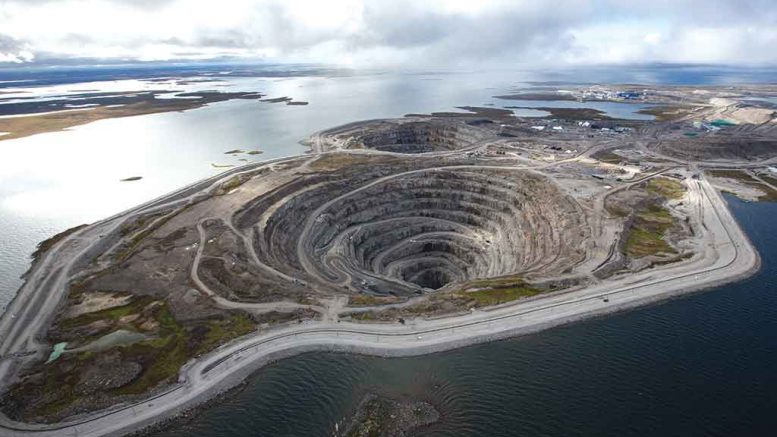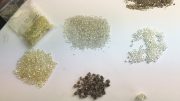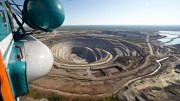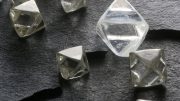Canada’s Dominion Diamond Mines has unveiled a transaction that would allow it to exit court protection from creditors and access short-term operating funds, which would pave the way to eventually restart its idled Ekati mine in Canada’s Northwest Territories.
The company, which owns and operates the iconic Ekati diamond mine and also has a 40% interest in the nearby Diavik, said it had signed a letter of intent with an affiliate of The Washington Companies.
The privately held Montana-based conglomerate bought Dominion for US$1.2 billion in 2017 when the miner was the world’s third-largest producer of rough diamonds by value.
Under the agreement, which requires court approval, Washington would buy the company’s assets for about US$177 million, while assuming its operating liabilities.
It would also provide Dominion with up to US$84 million in short-term debtor-in-possession financing.
Ekati has been halted since March to help slow down the spread of the coronavirus pandemic. The operation was left with about $180 million worth of inventory, which it has been unable to sell since its Belgian retailers remain closed.
The diamond miner said at the time that COVID-19 had a “devastating impact” on the global diamond mining industry.
According to court documents seeking bankruptcy protection from creditors, Dominion revenue from diamond sales last year reached US$528 million.
The company said the proposed sale would be conditional on reaching an agreement with Rio Tinto on the Diavik joint venture. Failing that, Dominion would exclude its interest in the Yellowknife diamond mine from the transaction.
The miner is a major employer in the Northwest Territories, with 634 workers, 60% of whom are locals. Only 212 people are currently at the mines, which are fly-in and fly-out operations. This allows for a pre-screening of the staff before they are allowed to board flights to Ekati and Diavik.
Shattered dreams
The global coronavirus outbreak squashed diamond miners’ dawning hopes of a recovery in a sector already reeling from weak prices and demand since late 2018.
De Beers, the world’s largest producer by value, cut 2020 production guidance by a fifth last month after earlier cancelling its April sales event.
Russia’s Alrosa, the world’s top diamond producer by output, saw sales for rough and polished diamonds drop to US$15.6 million. The figure stood in stark contrast to US$152.8 million the diamond miner fetched in March and US$405 million in January.
Lucara Diamond (TSX: LUC), another Canadian company, posted earlier this month a net loss of US$3.2 million, or 1¢ per share, for the first three months of the year.
The figure was in sharp contrast with the US$7.4 million in net income, or 2¢ in earning per share, the miner reported in the same period last year.
South Africa’s Petra Diamonds (LSE: PDL) recently delayed interest payments to borrow $21 million in new debt, a crucial move to keep the company afloat.
Investment banks are increasingly reluctant to extend credit to diamond producers, as inventory is not being sold and defaults are possible, analysts have warned.
“We are concerned about an oversupply of rough diamonds following the reopening of economies, as a lot of inventory could potentially be flooded into the system and the market might not be able to absorb all of it, resulting in increased pricing pressure,” Citi said in a research note in early May.
— This article first appeared in our sister publication, MINING.com.






Be the first to comment on "Dominion Diamond unveils plan to avoid bankruptcy"